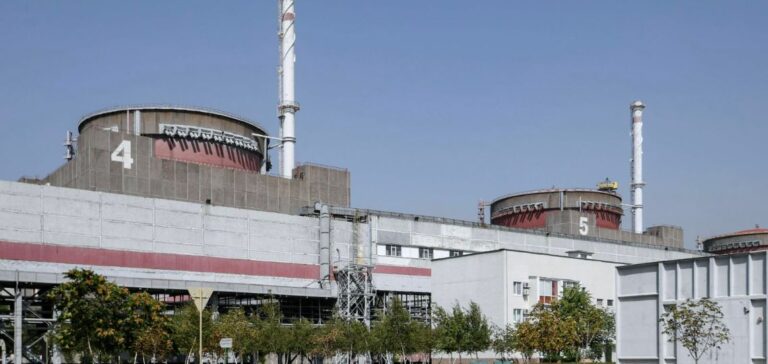The IAEA Board of Governors has adopted a new resolution calling on Russia to withdraw from the Ukrainian Zaporizhia plant and to stop its actions against nuclear sites, diplomatic sources said.
The text, presented by Canada and Finland, was approved by 24 of the 35 states sitting on the Council, said two diplomats contacted by AFP.
Russia and China voted against. Seven countries abstained (Pakistan, India, South Africa, Namibia, Kenya, Vietnam, Saudi Arabia). Two were absent.
Two resolutions on the subject had already been adopted, in March and then in September, at a time when the incessant bombardments in Ukraine are raising fears of a nuclear accident.
In this text, the Board of Governors of the International Atomic Energy Agency (IAEA) “expresses its deep concern” at Russia’s refusal to stop its attacks on Ukrainian nuclear facilities.
It calls on Russia “to abandon its baseless claims on the Zaporizhia power plant, to immediately withdraw its troops and personnel and to cease all actions” against the country’s power plants.
The one in Zaporijjia, the largest in Europe, is of particular concern.
Occupied since early March by Russian troops, it is located in one of the territories annexed by Russia.
Not far from the demarcation line between the territories controlled by Kiev and those occupied by Moscow, it is the target of regular bombardments, which both sides accuse each other of.
Calls for demilitarization have multiplied, without success so far.
IAEA inspectors have been present there since early September and the director general of the UN body, Rafael Grossi, has been conducting negotiations for several weeks to set up a protection zone around the site.
The discussions, which he described as “very complicated”, are aimed at achieving a “very simple” objective: “don’t shoot at the plant, don’t shoot from the plant”, he summarized on Wednesday, on the first day of the quarterly meeting of the Board of Governors, calling for action “as soon as possible”.





















